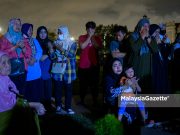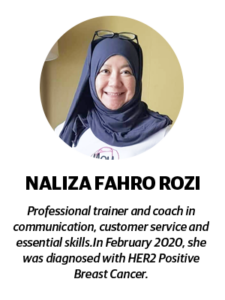 Do you remember being children on a long car trip, and annoying our parents when we kept asking: “Are we there yet?” Eventually, we learned that asking the question never got us there any faster, and spoiled the drive for everyone around us.
Do you remember being children on a long car trip, and annoying our parents when we kept asking: “Are we there yet?” Eventually, we learned that asking the question never got us there any faster, and spoiled the drive for everyone around us.
After more than a year into my cancer treatments, I am experiencing chemo fatigue and cannot wait to get this over and done with. On the last leg of this marathon, I can see the finishing line. Nevertheless, I am just feeling too exhausted to run any faster than I am running right now. It feels like it is taking forever to reach the finishing line.
Why is the last mile so often the hardest part of the whole journey?
 After being diagnosed with HER2 Positive Breast Cancer in March 2020, I decided to go with conventional cancer treatments at the hospital. The first phase of my cancer treatments involved removing the source of my cancer, nipping it at the root.
After being diagnosed with HER2 Positive Breast Cancer in March 2020, I decided to go with conventional cancer treatments at the hospital. The first phase of my cancer treatments involved removing the source of my cancer, nipping it at the root.
I underwent mastectomy and axillary lymph nodes dissection. My entire right breast including the nipples and 13 lymph nodes in my underarm area were removed during the surgery. I took a month to recover. To prepare for the second phase, I went into surgery again to implant a chemo port in my left chest. With the chemo port implanted, I was ready to start my cancer treatments after several days.
 The second phase involved four cycles of Epirubicin and Cyclophosphamide Chemotherapy – every three weeks. During this phase, I experienced brutal side effects. Complementary therapies like Lymphatic Therapy and microcurrents helped ease the pain.
The second phase involved four cycles of Epirubicin and Cyclophosphamide Chemotherapy – every three weeks. During this phase, I experienced brutal side effects. Complementary therapies like Lymphatic Therapy and microcurrents helped ease the pain.
In every cycle, the first week was would be the worst – nausea, vomiting, diarrhoea, joint pains, hot flushes and chronic fatigue. In the second week, side effects lessened. By the third week, I would be jumping with joy, being pain free, until it was time to start a new cycle – and repeat my ordeals all over again.
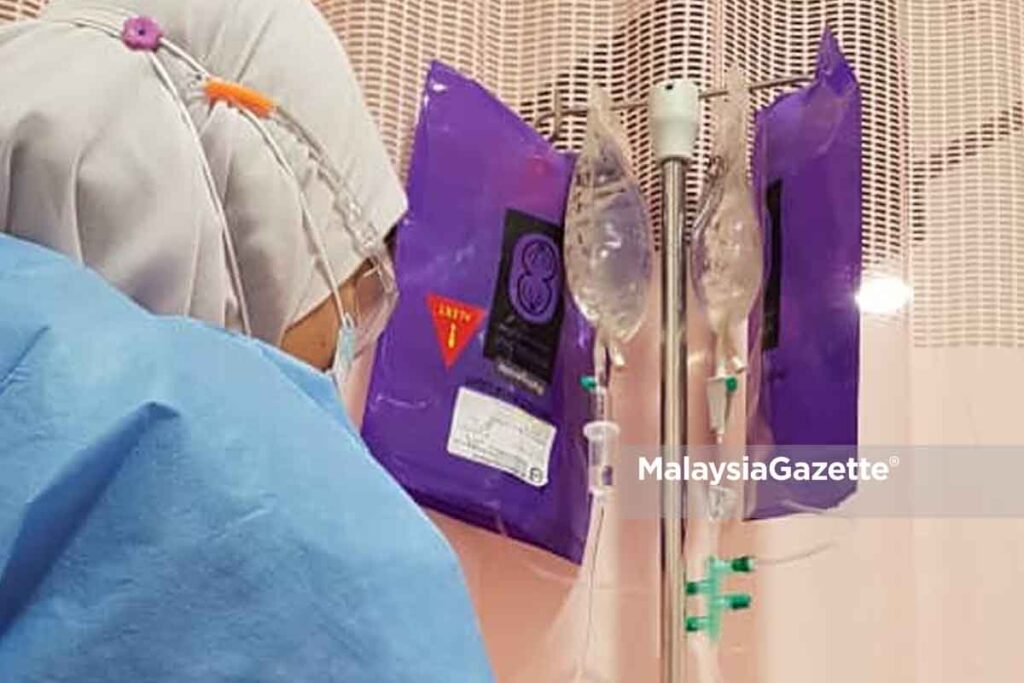 After the second cycle, I lost my crowning glory, eye brows, eye lashes and every hair on my body, and my nails turned blue black. I experienced hypersensitivities, numbness and loss of menstruation.
After the second cycle, I lost my crowning glory, eye brows, eye lashes and every hair on my body, and my nails turned blue black. I experienced hypersensitivities, numbness and loss of menstruation.
The third phase was Paclitaxel Chemotherapy, for 12 weekly cycles. I experienced similar side effects, at a lesser degree, but more frequently. The fourth phase included 15 daily fractions of radiotherapy. The daily exposure to heat and radiation caused skin burns and blisters on my right chest and underarm. I experienced rotary cuff and frozen right shoulder. I suffered tinnitus on my right ear that caused 20% hearing loss.
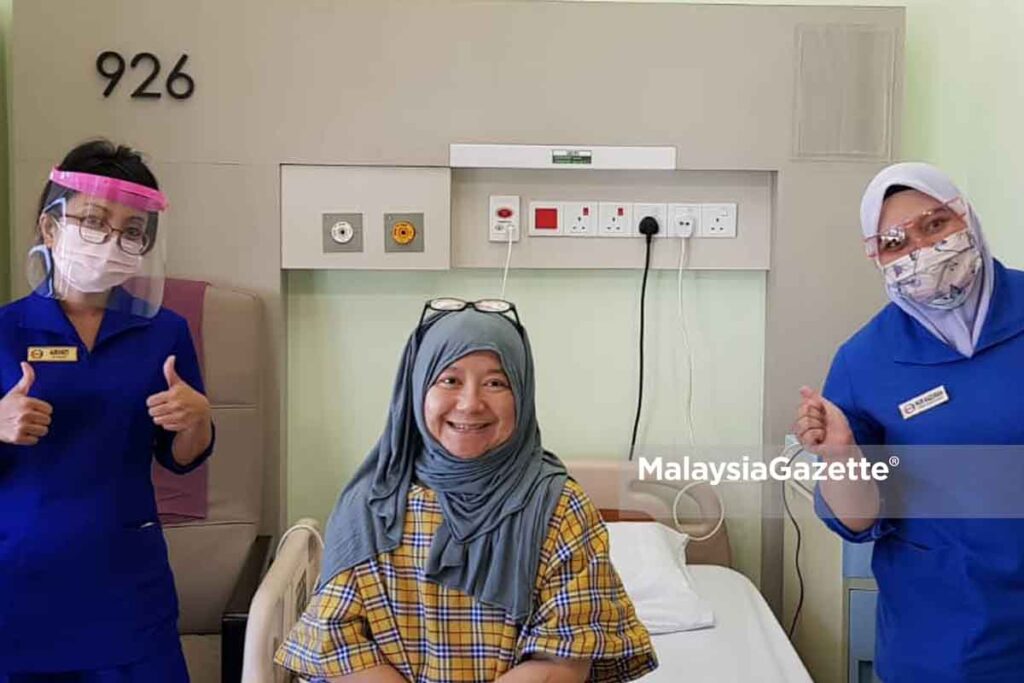 Cancer treatments caused emotional meltdowns, because I am constantly in pain. Post trauma stress! What kept me hanging on tight to that olive branch was my faith in God, belief in miracles, and emotional support from my husband, family, friends, bosses and colleagues.
Cancer treatments caused emotional meltdowns, because I am constantly in pain. Post trauma stress! What kept me hanging on tight to that olive branch was my faith in God, belief in miracles, and emotional support from my husband, family, friends, bosses and colleagues.
I’m now in the fifth phase – 18 cycles of HER2 Targeted Therapy, every three weeks. I completed 16 cycles, another two more cycles to go – the last miles, so to speak!
Now that the hardcore treatments are nearly done, the dust is settling slowly and the reality is sinking in even slower. I’m in a reflective and pensive mood where I’m rethinking everything in my life.
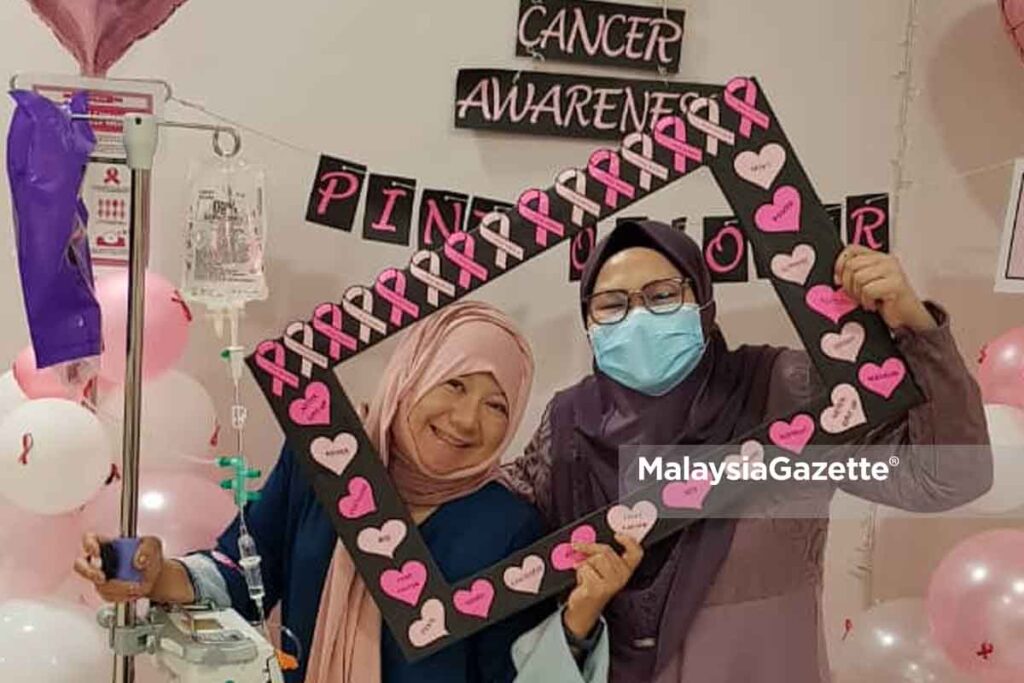 The treatments are still affecting me physically, but now I am used to feeling whatever it is that I am feeling. I am trying not to make a big fuss over the unending pain that I am experiencing. But then again it bothers me that I am always tired with this insatiable feeling of fatigue – chemo fatigue.
The treatments are still affecting me physically, but now I am used to feeling whatever it is that I am feeling. I am trying not to make a big fuss over the unending pain that I am experiencing. But then again it bothers me that I am always tired with this insatiable feeling of fatigue – chemo fatigue.
The ‘last mile’ has a reputation – it is known as the hardest and the greatest, the final step in getting somewhere, regardless of what that involves [or how far it actually is]. As I write this column, I ponder on the age-old adage “It’s not the destination that counts; it’s the journey.”
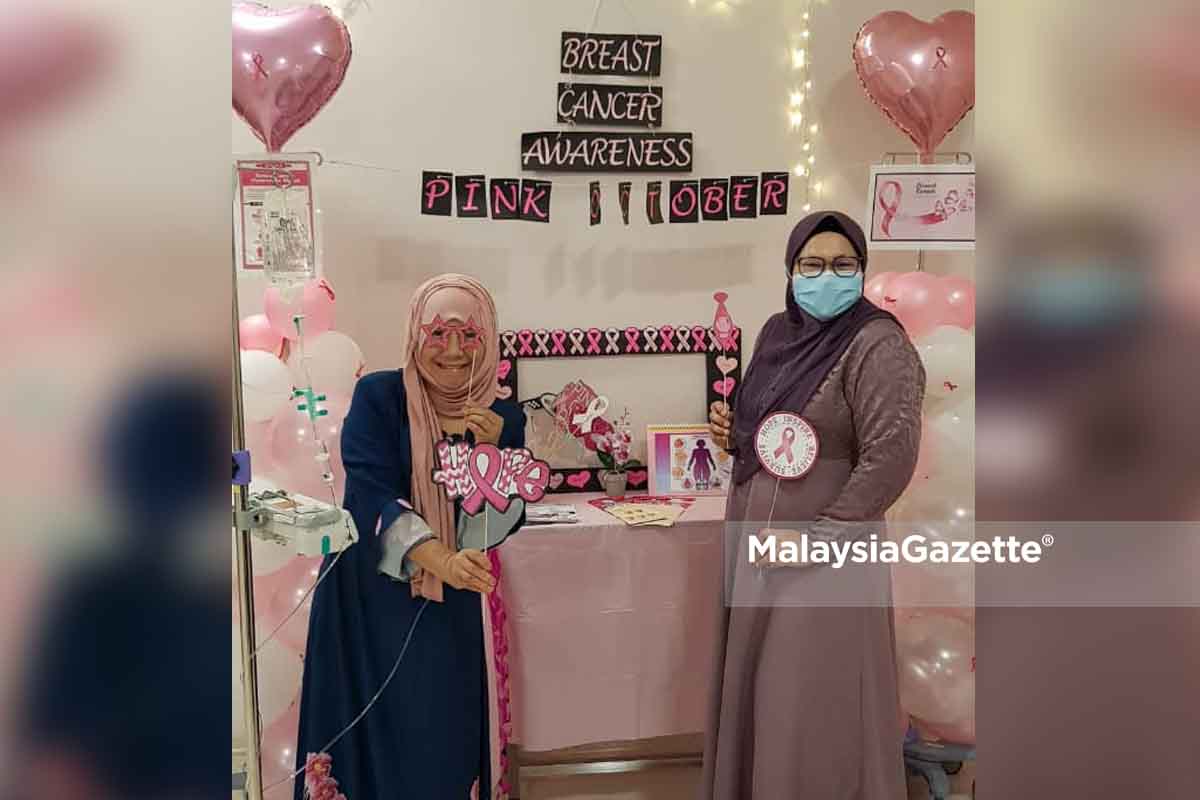 Everyone’s trip is unique, and might involve extra stops along the way. The last leg of the journey can make or break us. Our quality of life may depend on how we travel that last mile of the journey. Will our last mile be the hardest or the greatest?
Everyone’s trip is unique, and might involve extra stops along the way. The last leg of the journey can make or break us. Our quality of life may depend on how we travel that last mile of the journey. Will our last mile be the hardest or the greatest?


